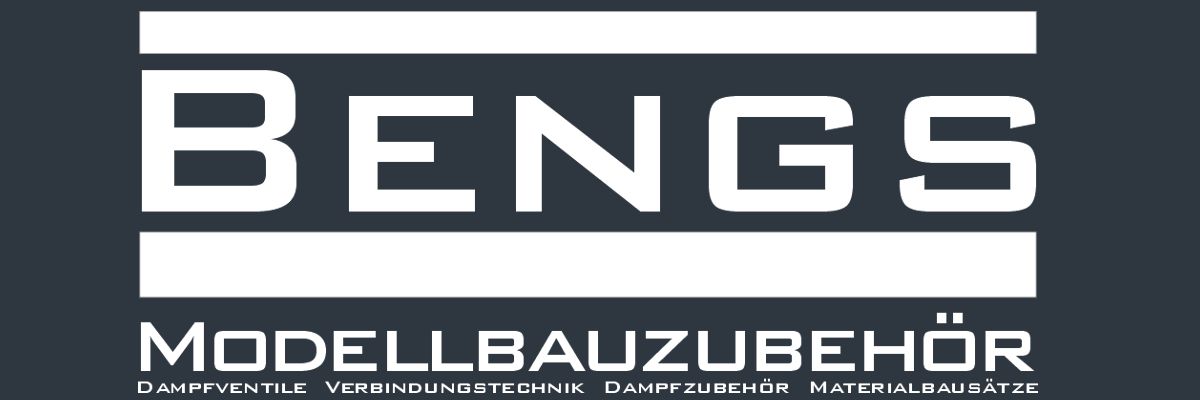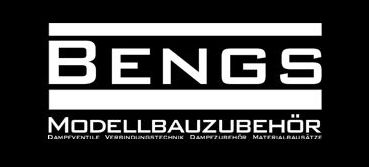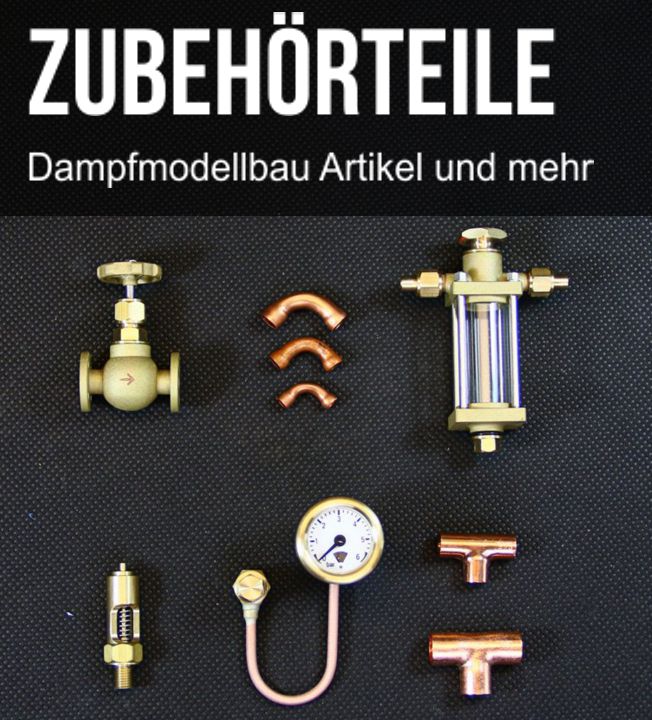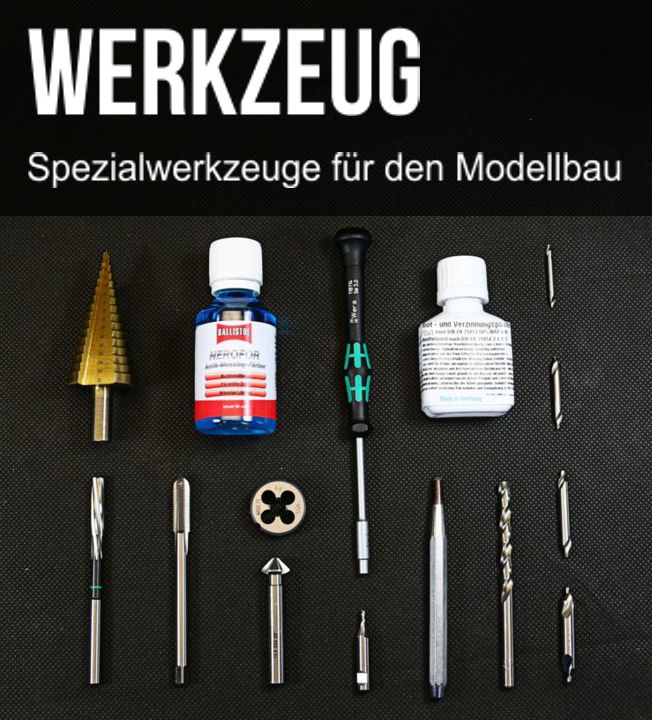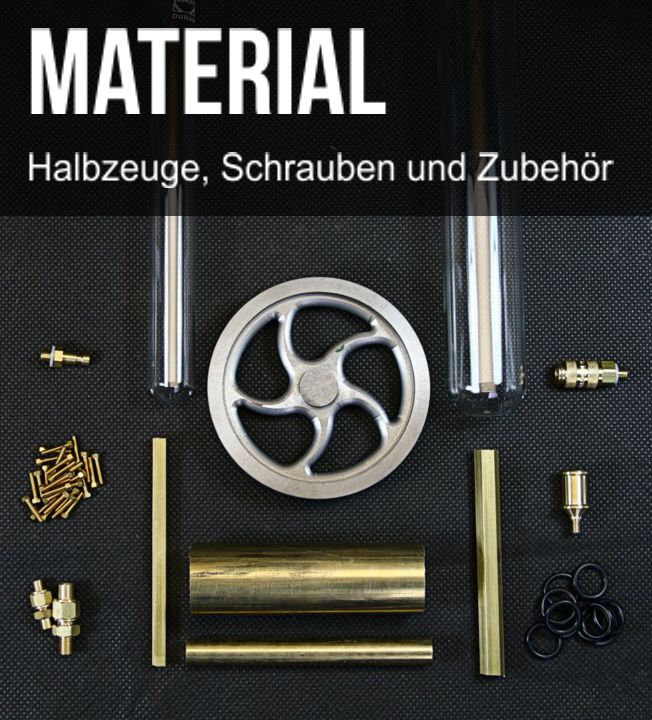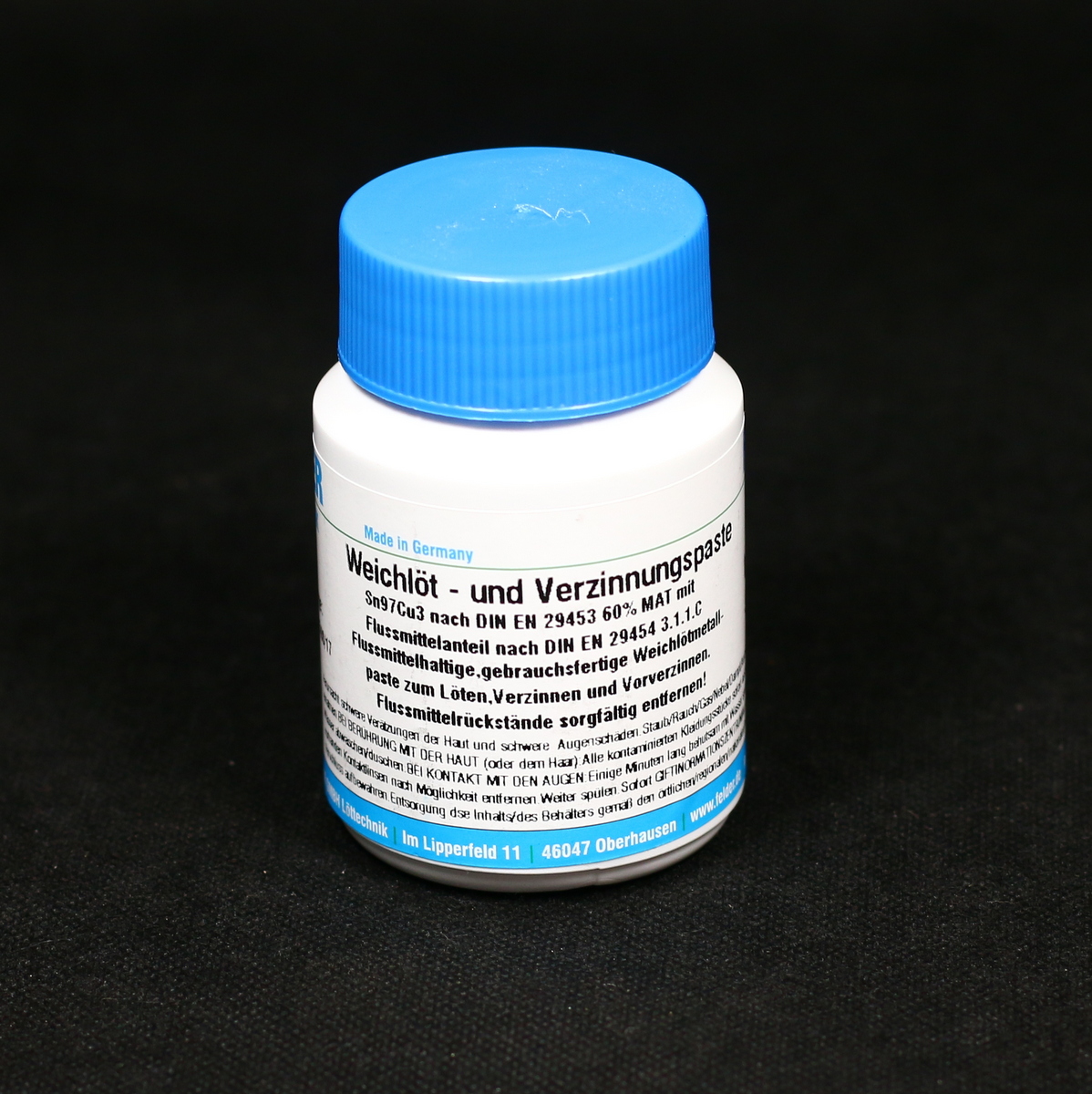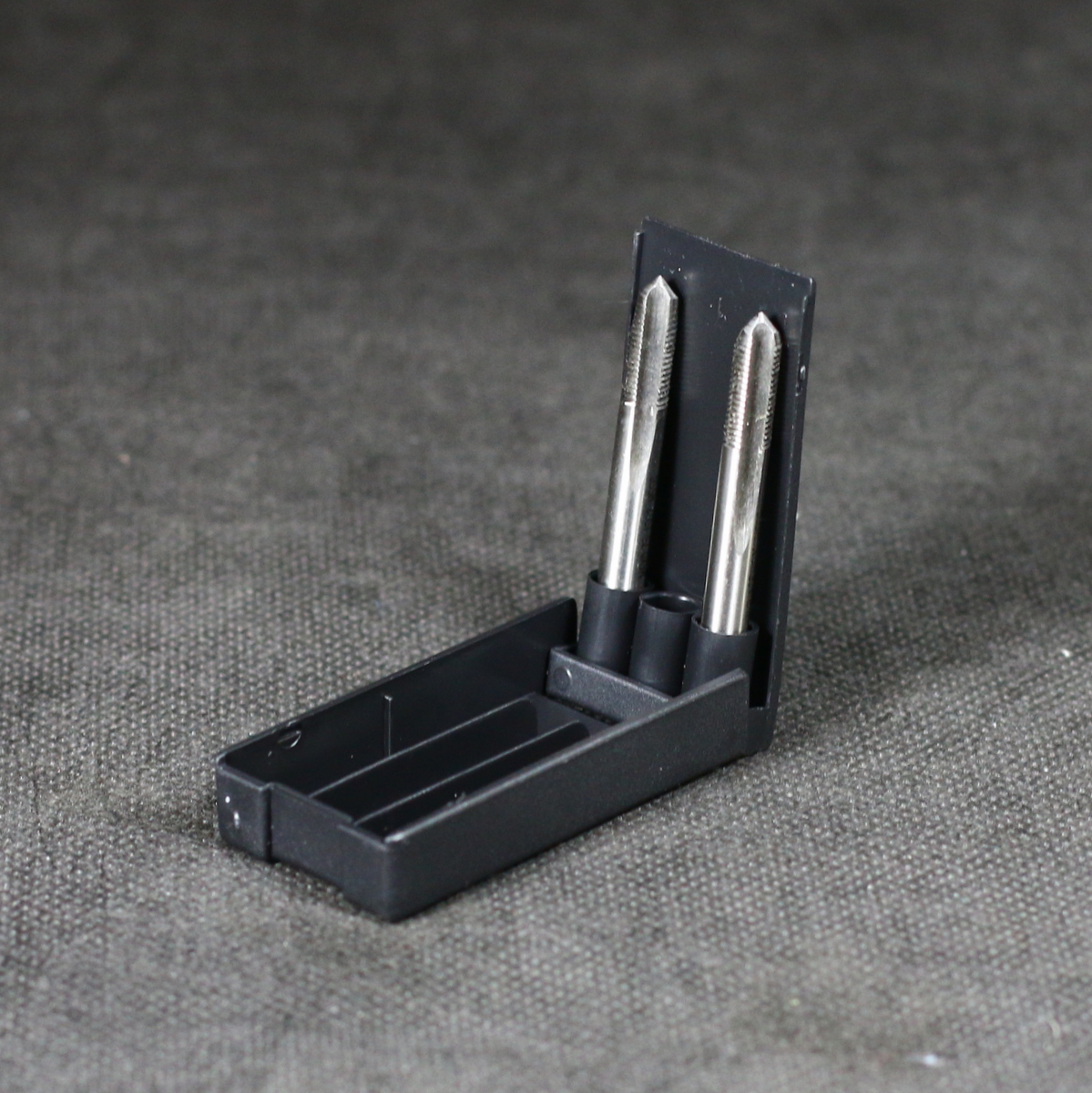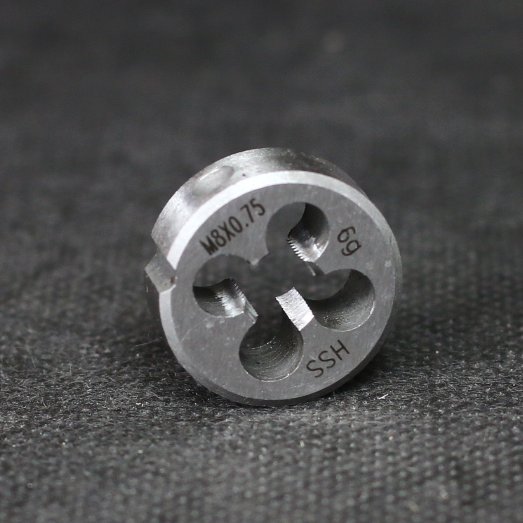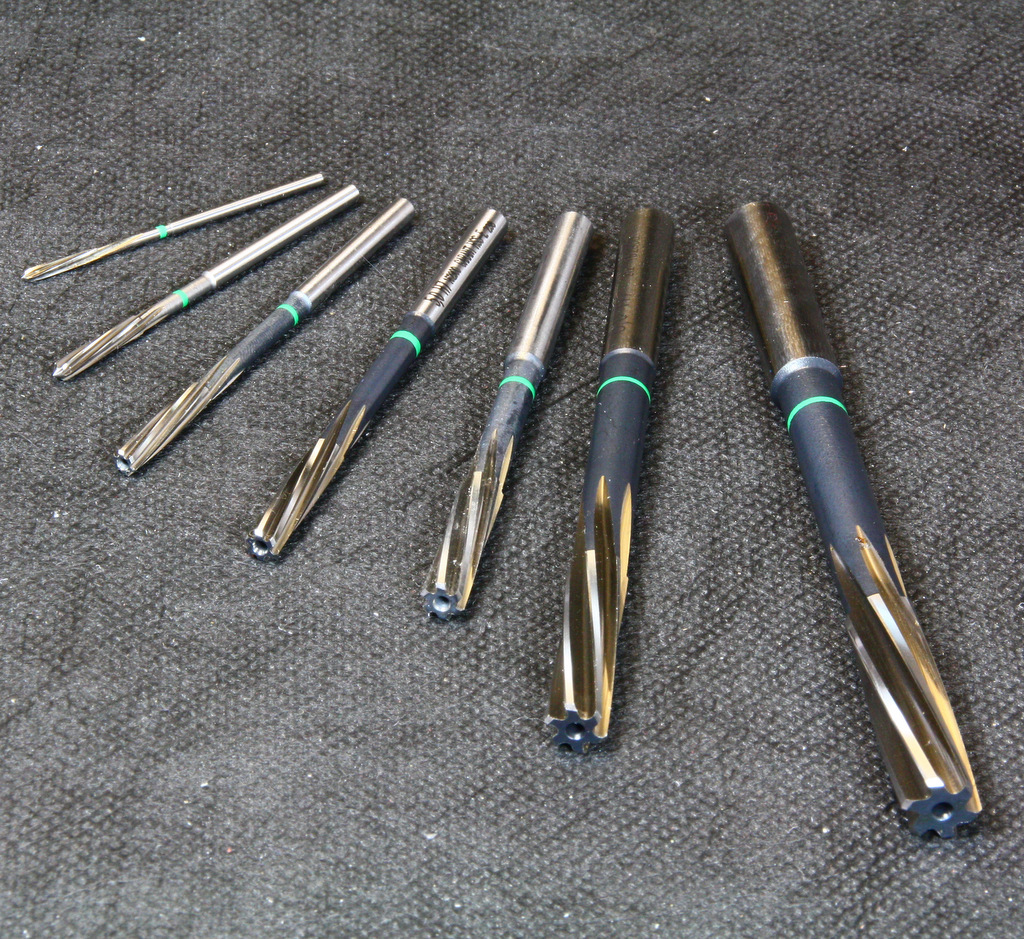Stationary engine Karl with Hit & Miss regulation
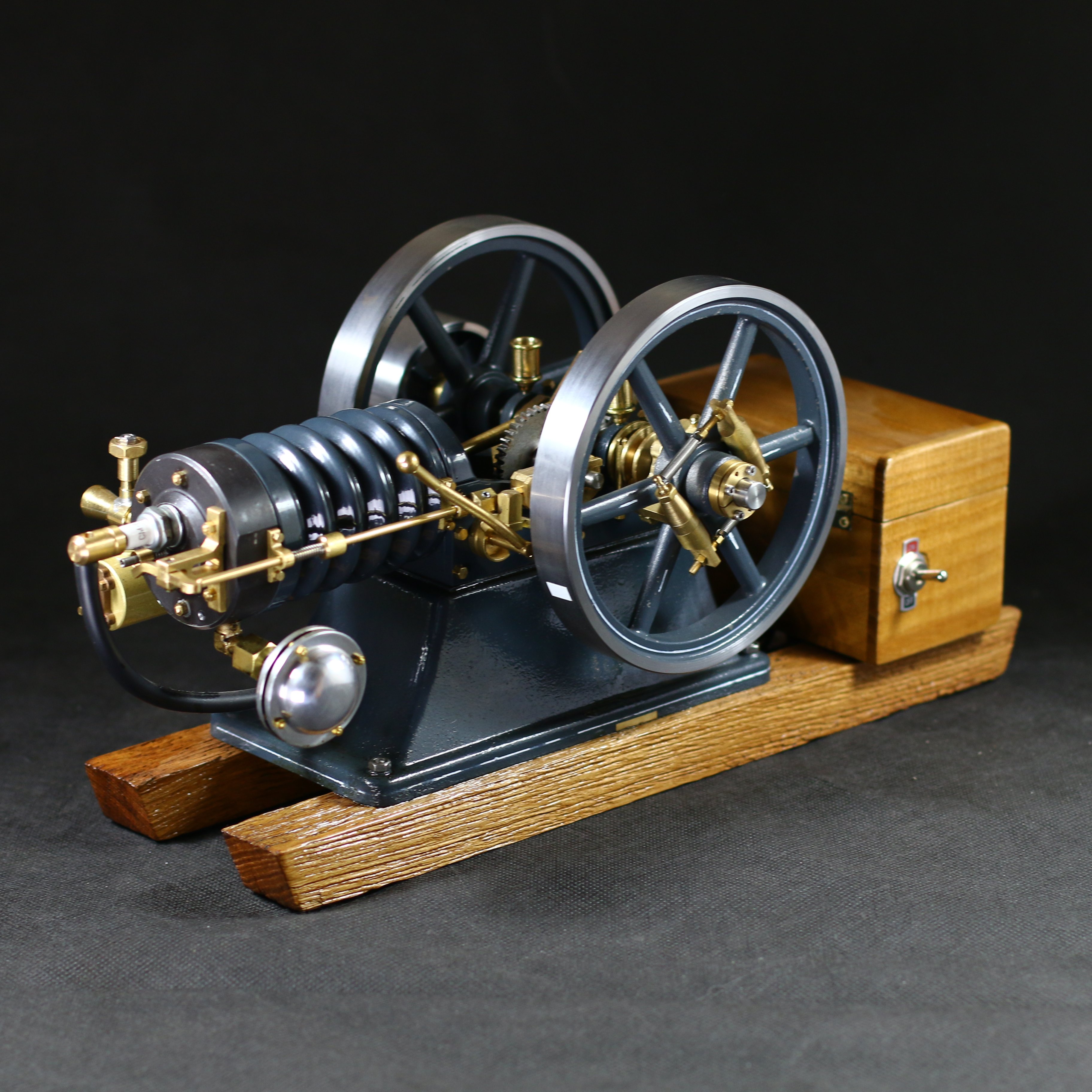
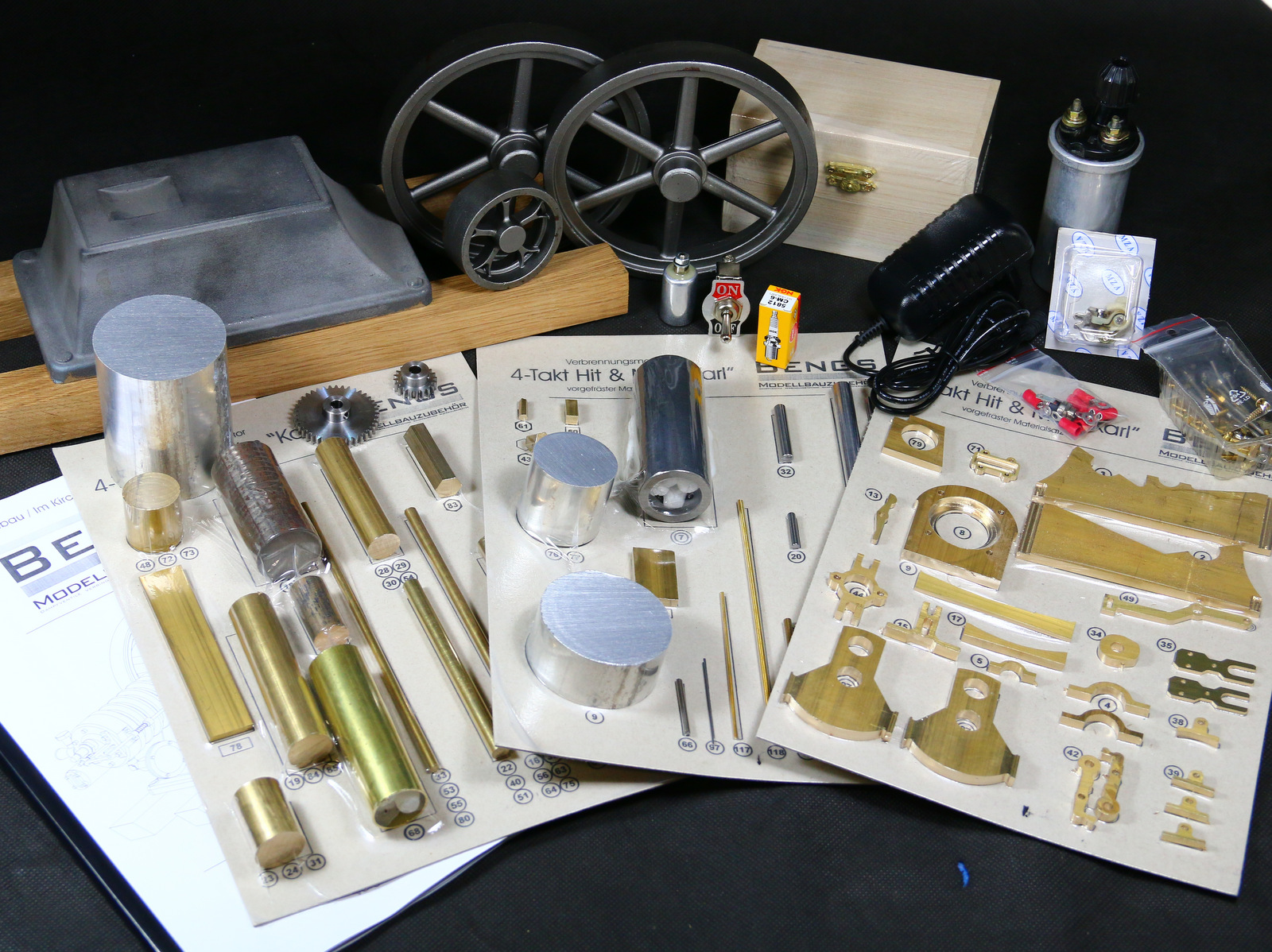
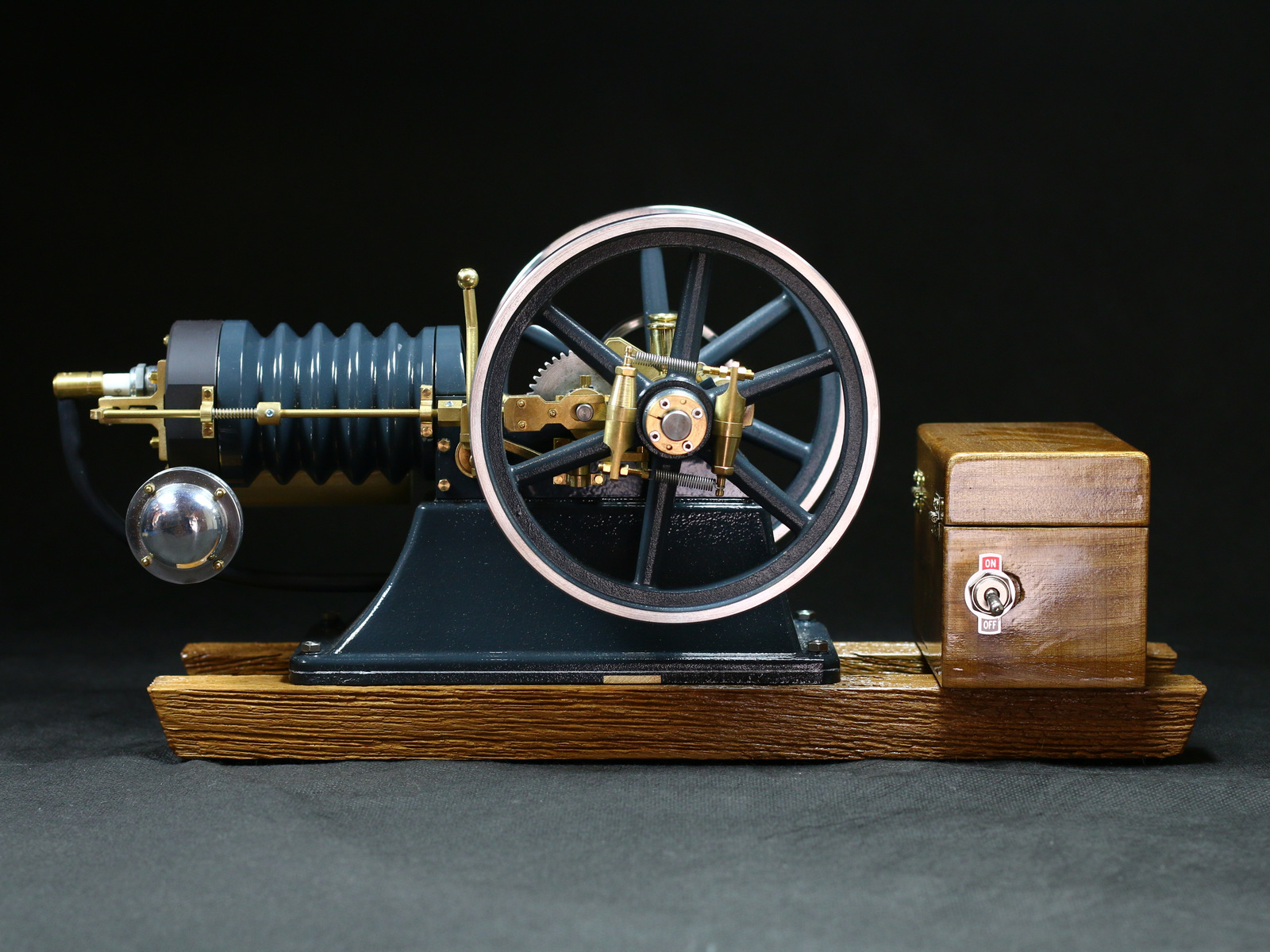
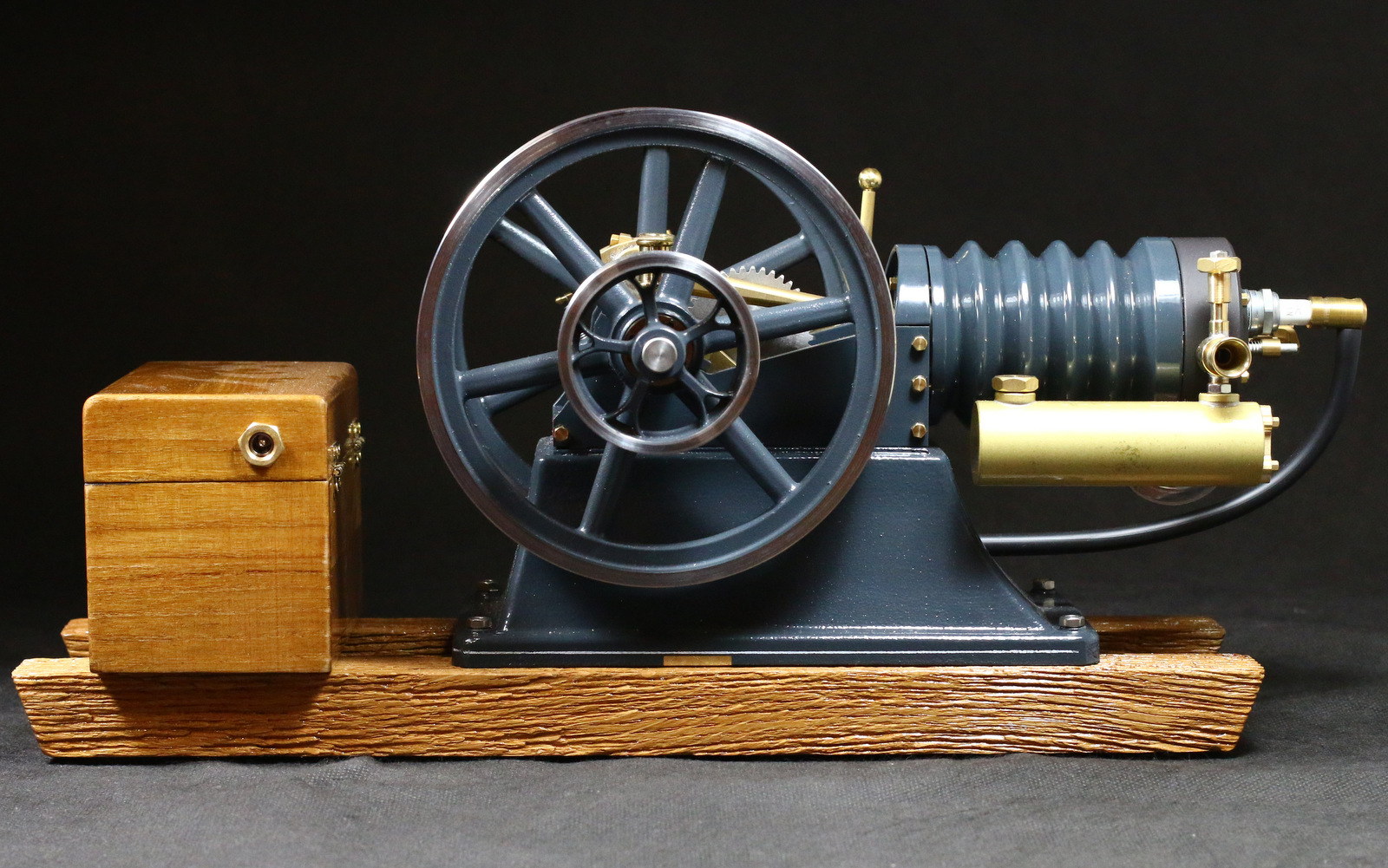
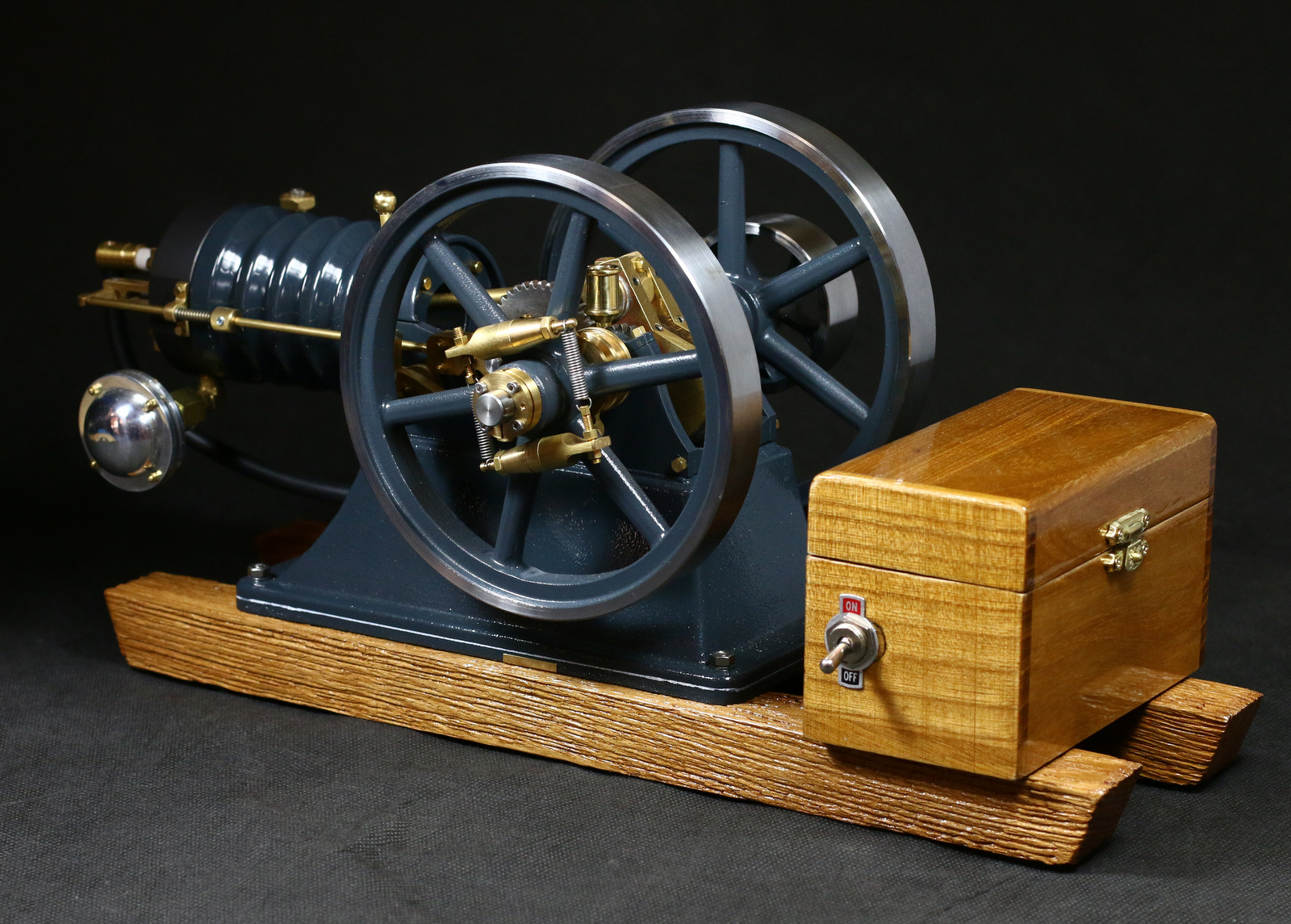
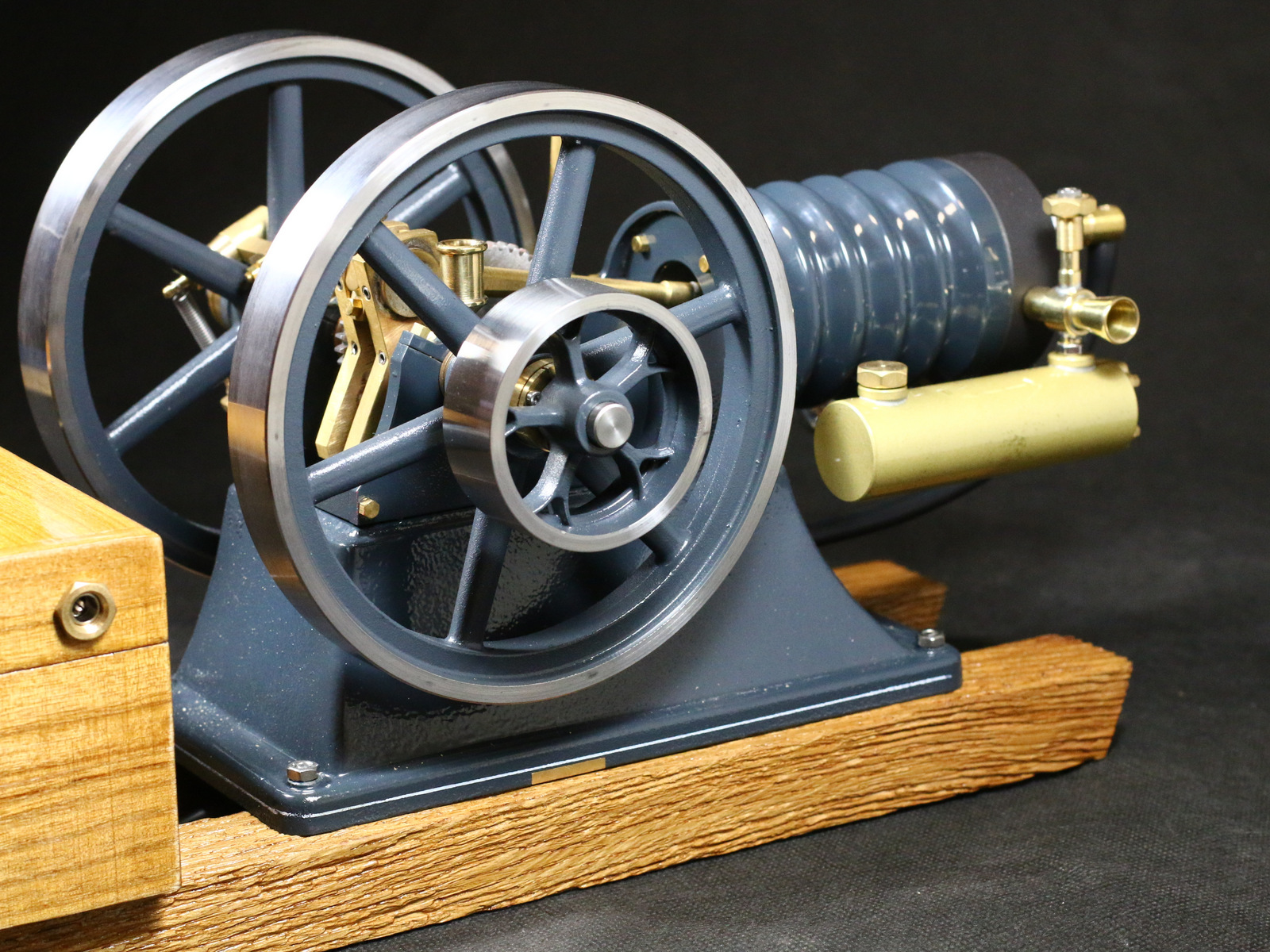
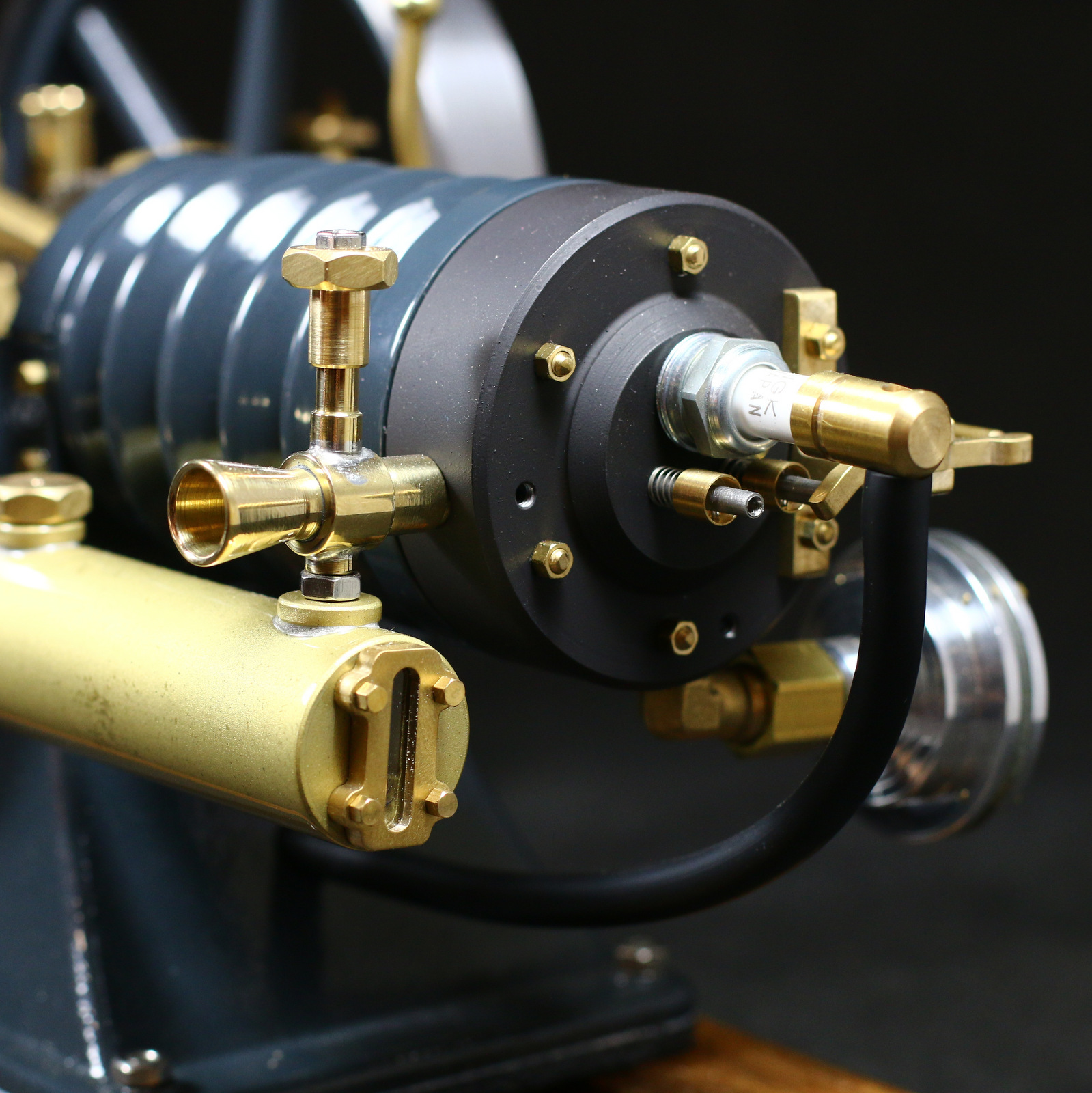
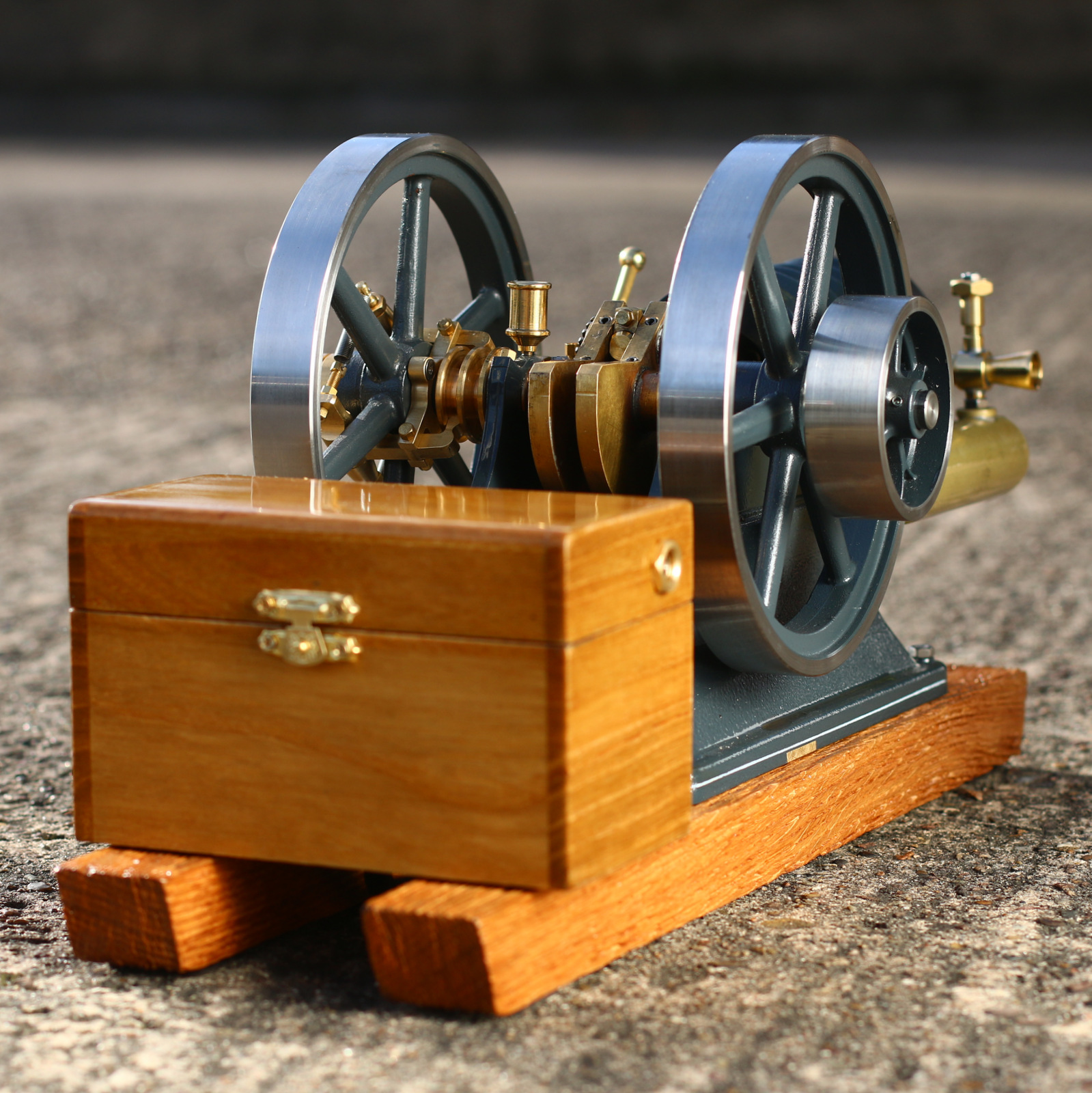
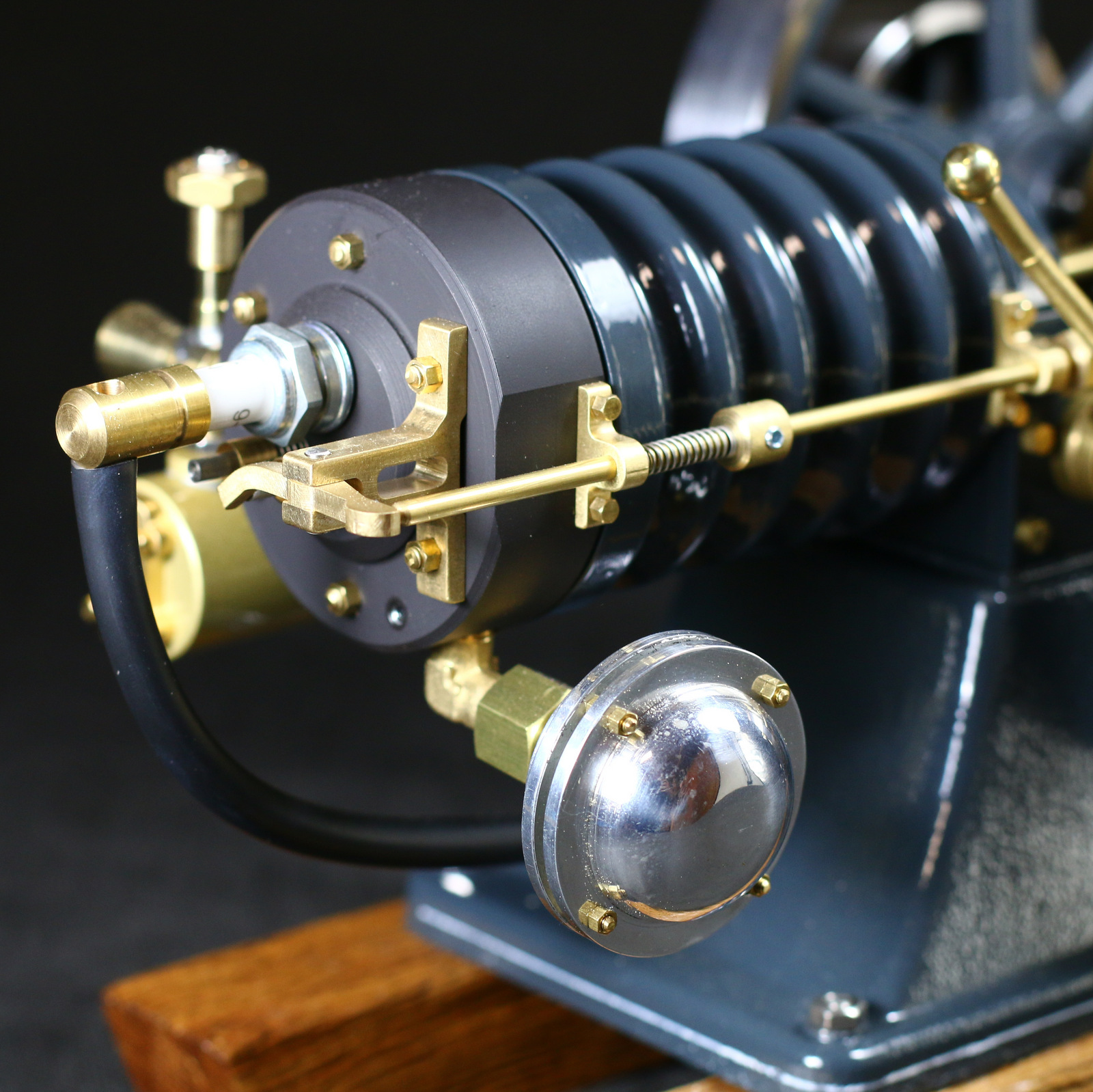
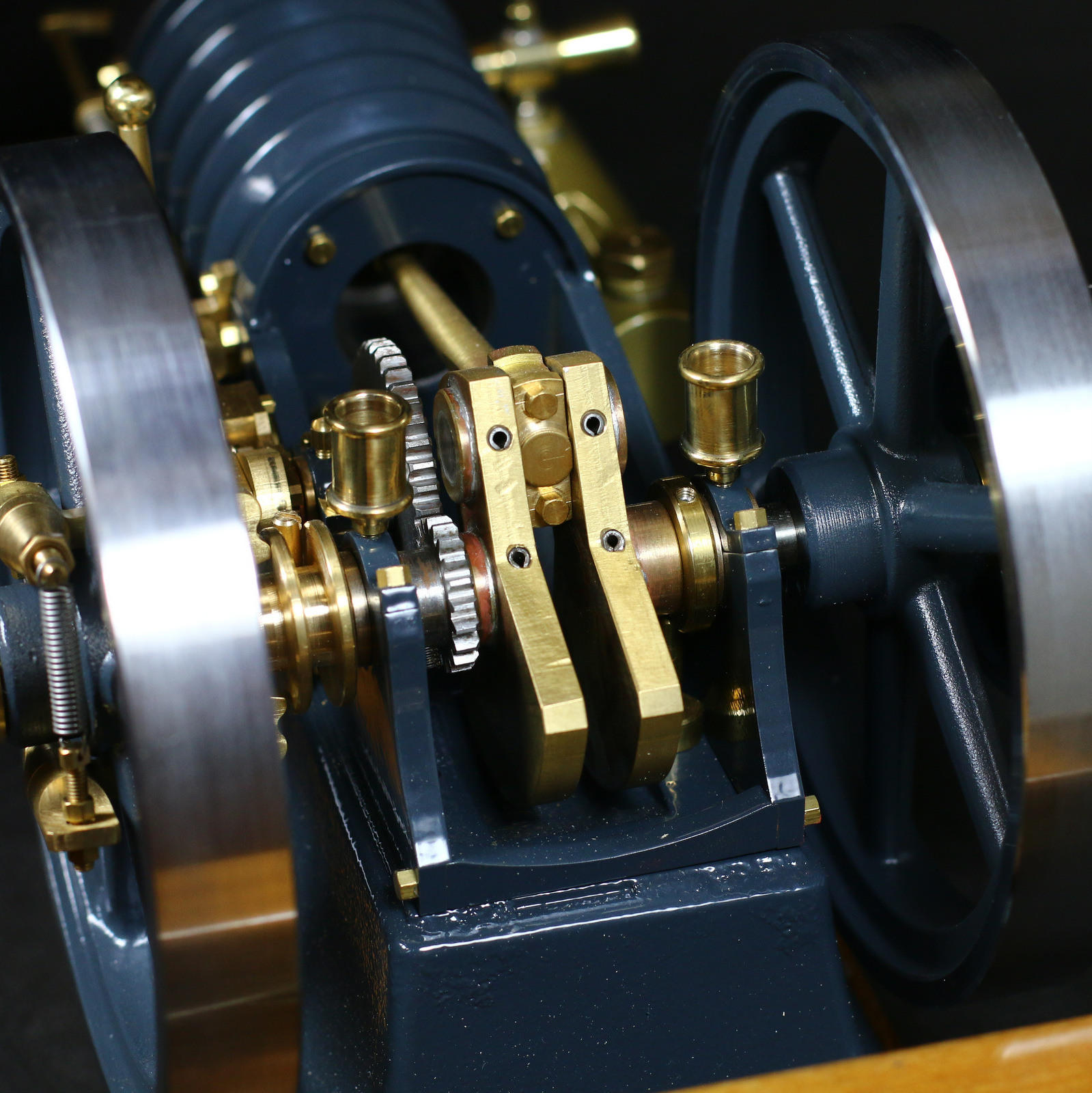
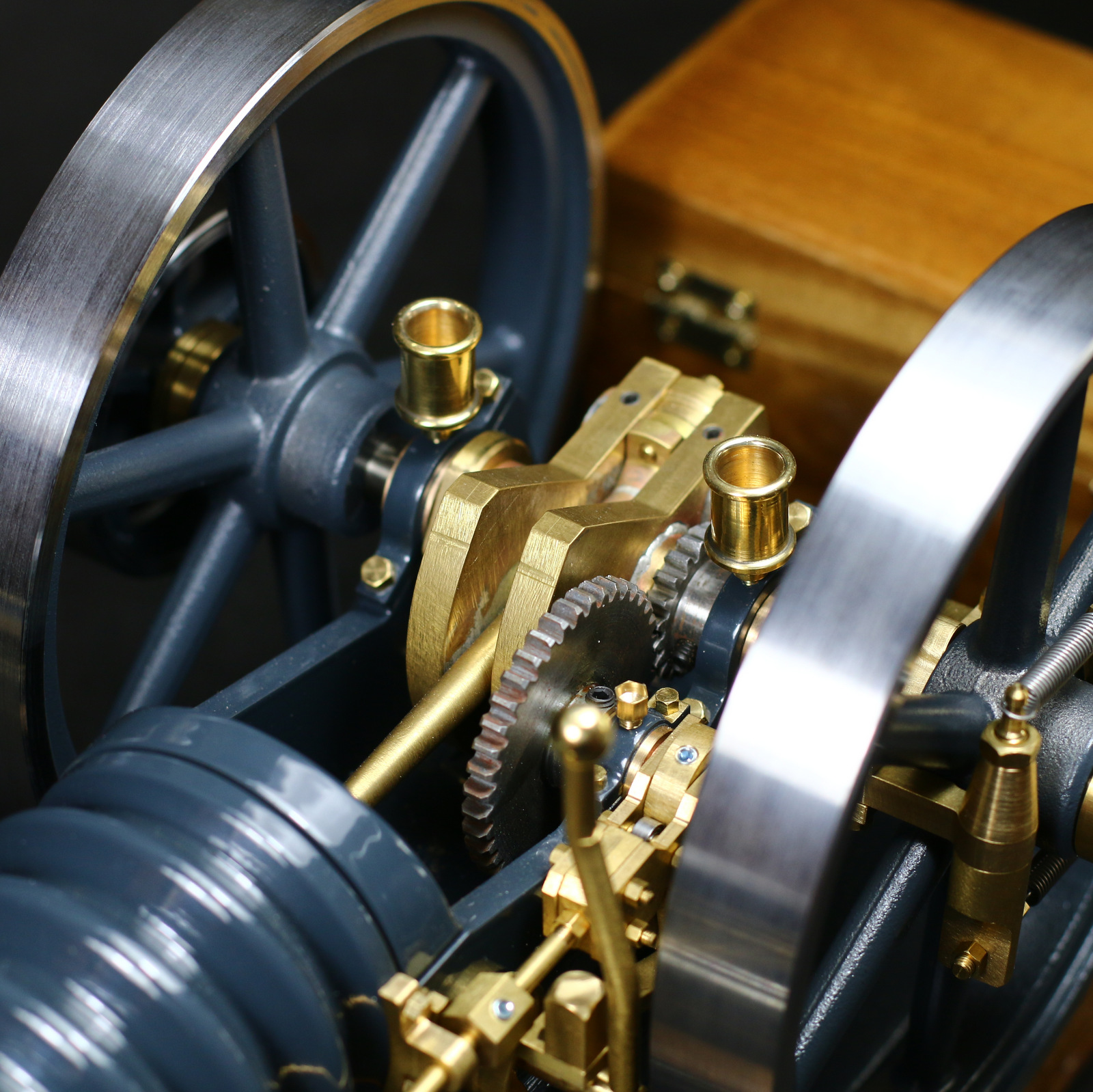
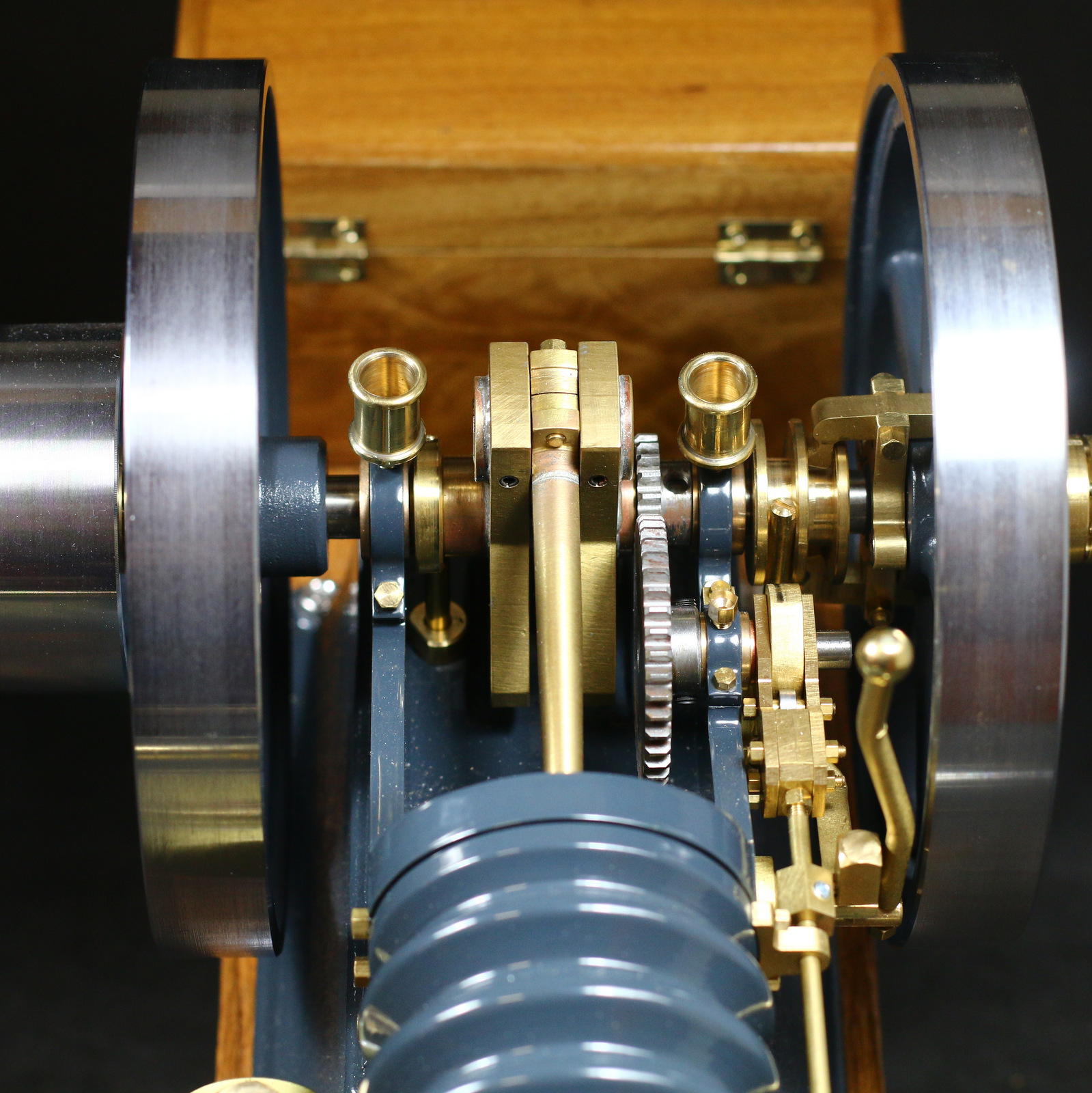
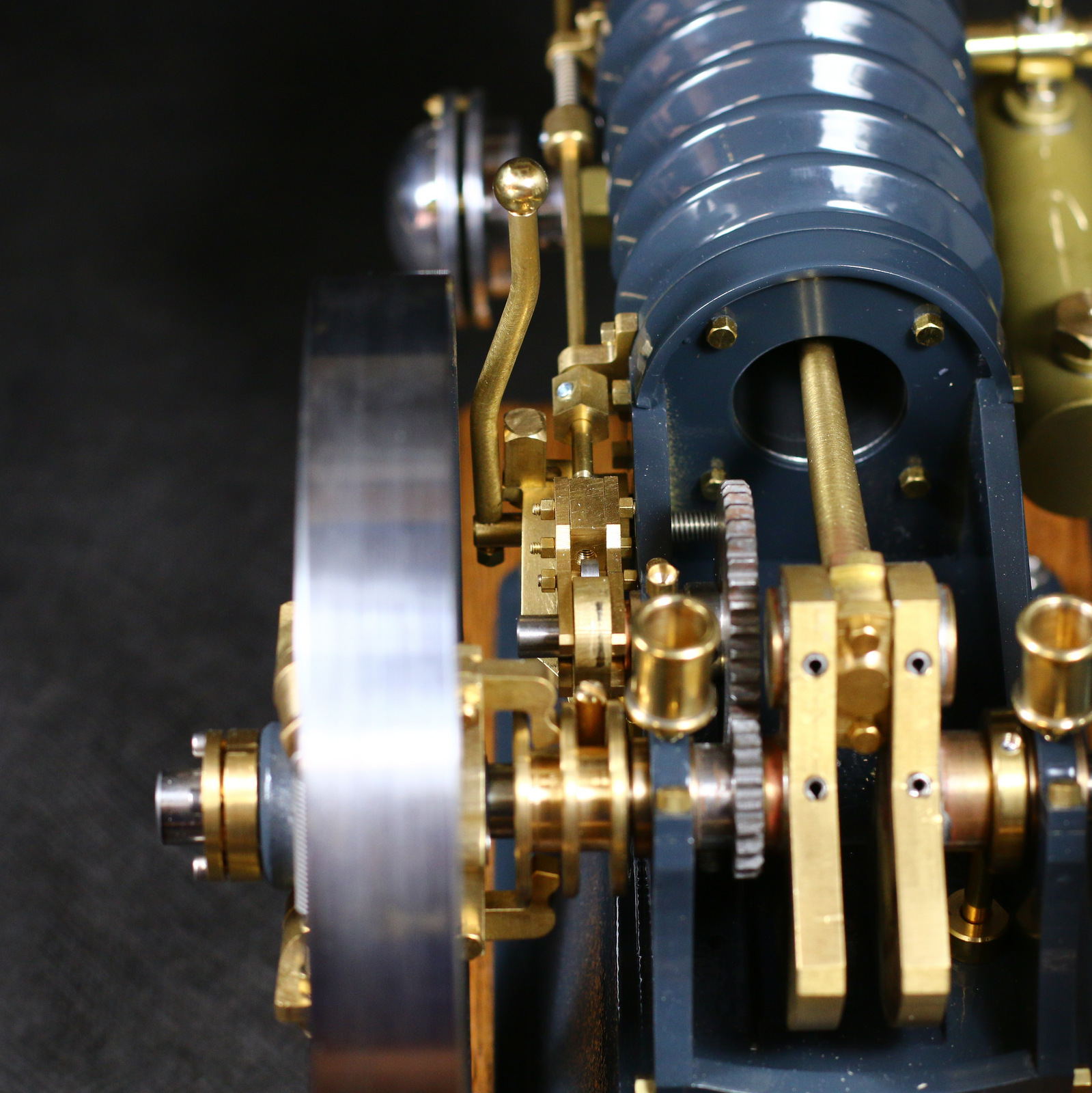
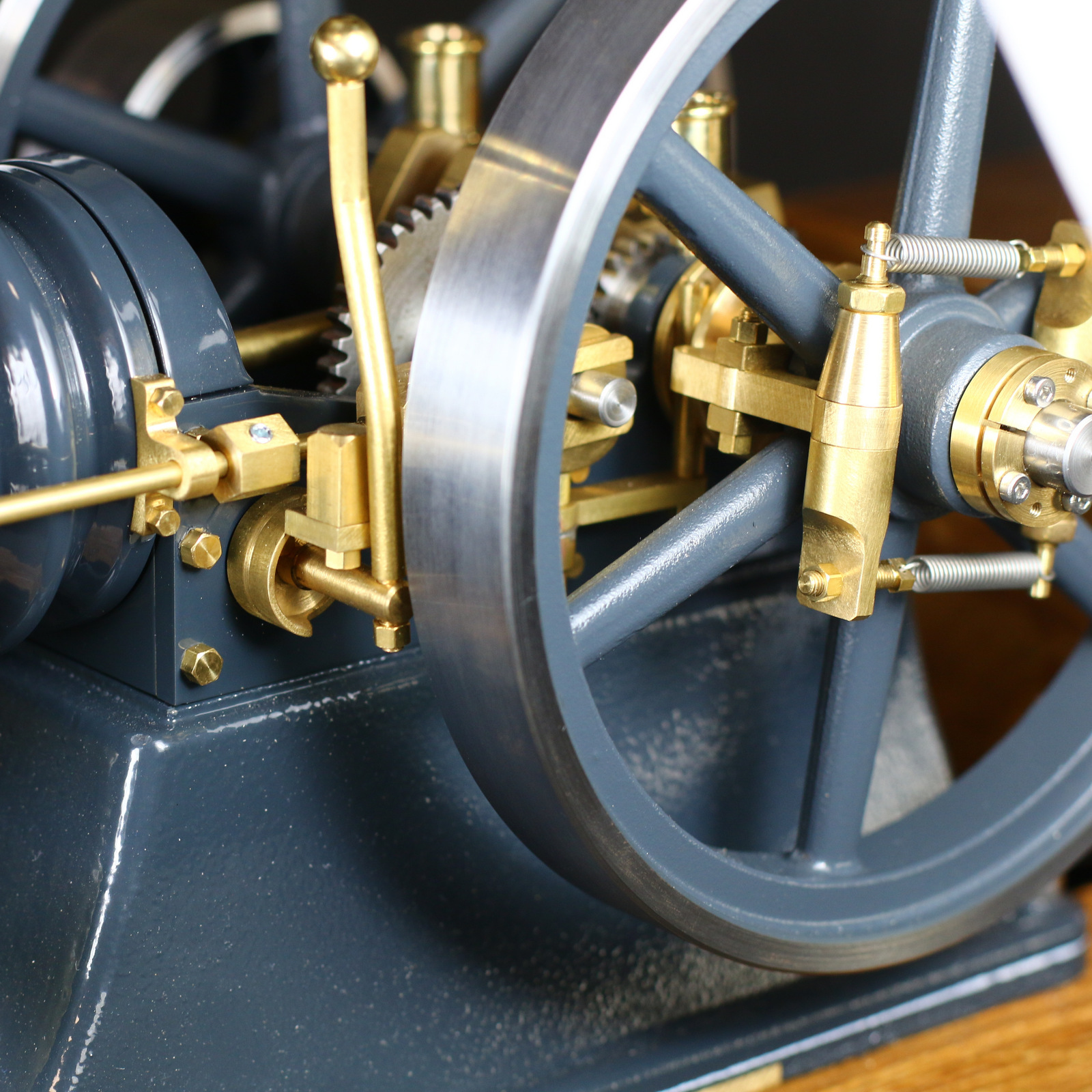
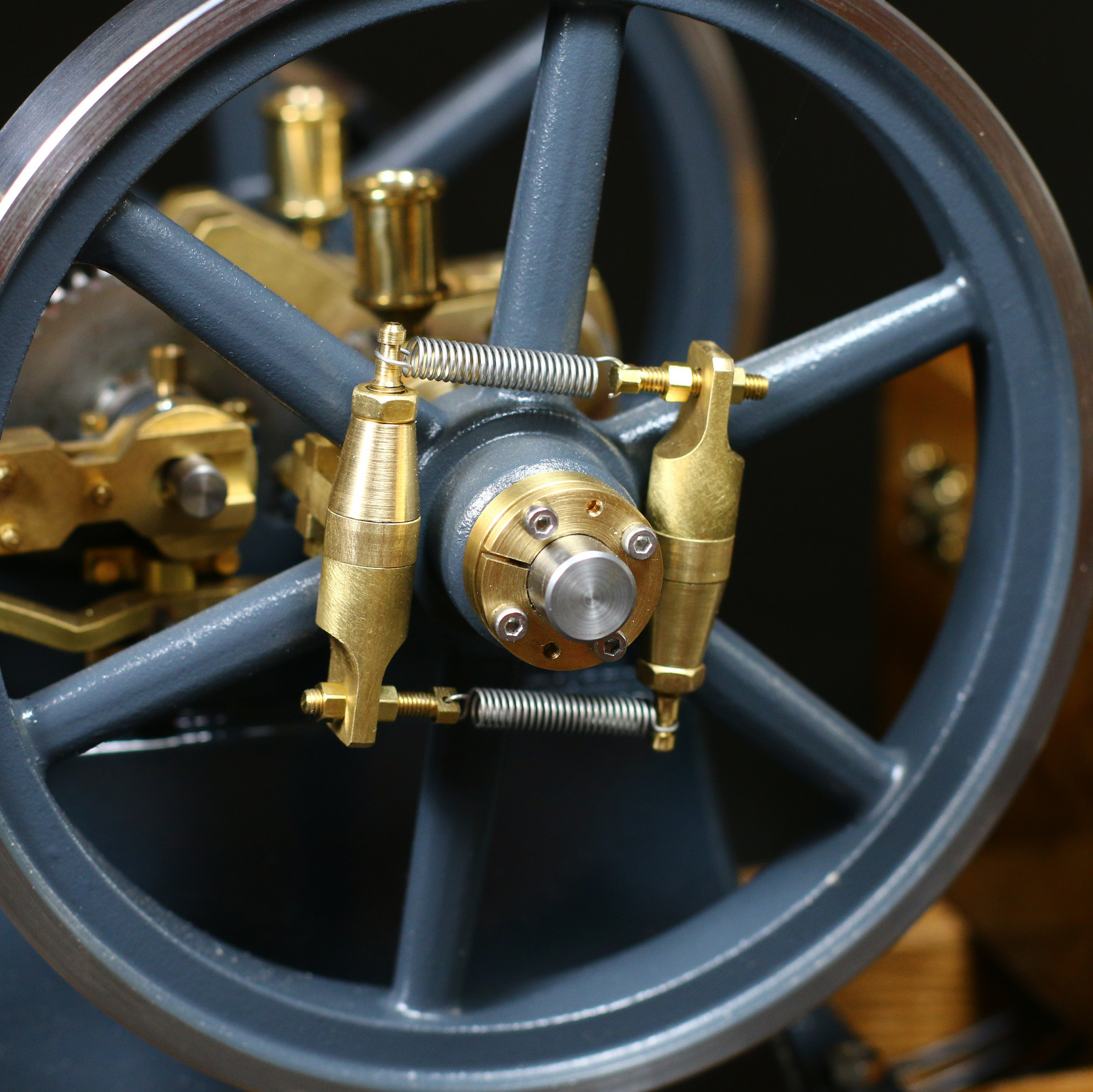


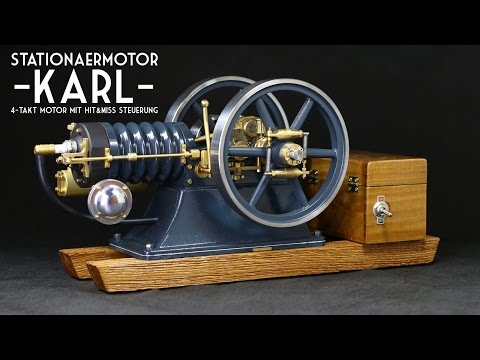












































Stationary engine with hit and mismatch were used from 1890 to 1940 for a variety of tasks. The design with lying cylinder, open crankshaft and two flywheels was one of the most popular. These engines have been used in many farms to drive threshing machines, pumps, or grain grinders. But also in many craft and industrial engines, these combustion engines have been used in various sizes. Particularly in the American area, the speed control system has been widespread through a misfire control. The open crankshaft and the open rocker arms allow a very good view of the workings in an internal combustion engine.
With the material kit for the internal combustion engine "Karl" you can build a fully functional combustion engine. The material kit contains all required parts including the ignition. The engine has a functioning speed control, which is controlled by a hit and miss misfire control. The ignition is concealed in the base of the machine, as well as in the wooden box behind the machine base.
Dimensions of the model internal combustion engine 'Karl':
- Height with wooden runners: 192mm
- Overall length: 440mm
- Width overall: 180mm
- Length without skids and wooden box: 283mm
- Dia. Piston: 25mm
- Flywheel D .: 140mm
- Speed: 600-1500 rpm
The machine foot of the station motor is a heavy gray cast iron base. The piston of the machine is also made of gray cast iron round material. The cylinder is made from a hydraulic cylinder tube which is already finished on the inside and has an excellent surface. The cylinder head and cooling jacket are made of aluminum to guarantee good heat dissipation. The flywheels are made of cast steel in the usual Bengs model construction quality. Most attachments and machine frames are made of brass.
All necessary materials for the construction of the internal combustion engine "Karl" Screws, springs and ignition parts are included in the kit. All milling parts are prepared so that they are only deburred and possibly drilled.
Construction of the Hit & Miss engine requires a lathe, a drilling machine and a gas burner for soldering. Furthermore, the following hand tools still needed (taps M2, M3, M4, M8x0,75, M10x1 Dies M2, M3, M4, M8x0,75, M10x1 Reamer 3H7, 4H7 6H7, 10H7) files and a set of drill bits needed. Only one side cutter requires a stripping plier and a soldering iron for wiring the ignition.
If you want to find out in advance what steps need to be performed in the production of this engine that you see in our Bengs model magazine the building report from the 4-stroke stationary engine "Karl" on. On this page you can see the illustrated report how the station motor is edited.
Included in the delivery are:
- Finished CNC milled milling parts
- Raw material for the turned parts
- Raw casting for the flywheels
- Raw casting for the belt pulley
- Two wooden runners
- All required screws, nuts, sprockets and ball bearings
- Drawings Internal combustion engine "Karl" (24 sheets) and english construction manual (11 sheets)
- Wooden box for ignition
- Ignition coil, condenser, spark plug and breakers
- All required cables for the ignition
- Power supply for the ignition
Hit & Miss regulation
The Hit & Miss regulation can limit the engine's maximum speed. When the engine has reached an excessive speed, a slider prevents the exhaust valve from closing. Thus the motor runs freely. No compression in the cylinder chamber can occur and the engine does not suck up any fresh gasoline or ignite the air fuel mixture. The Hit & Miss regulationt is mentioned in the German suspension rules. The intermittent control system was used from 1890 to 1940 mainly in the USA by different companies with internal combustion engines.
0 of 0 reviews
Login
Cutsomers also bought
Content: 0.1 Kilogramm (€102.00* / 1 Kilogramm)
